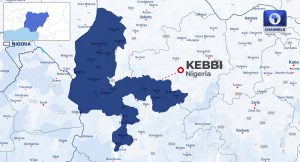
Kebbi government confirms rescue of kidnapped student
“We thank God Almighty and appreciate the efforts of the security agencies,” a government statement read.
Read More
Comment
0

Top Dem governor, Whitmer, criticized by Democrats after Trump praises her amid executive orders
Republicans, meanwhile, expressed confusion over Trump’s praise of a potential 2028 opponent, with one strategist calling it a political misstep.
Read More
Comment
0

Andrew Tate told woman ‘I’m debating whether to rape you’, court papers allege…
Tate denies all allegations, calling them “a pack of lies” and asserting all acts were consensual.*
Read More
Comment
0

NERC fines eight DisCos N628m for over billing unmetered customers
“These DisCos have been fined over N628 million and are required to issue credit adjustments to the affected customers by May 15, 2025,” the Commission said.
Read More
Comment
0

Akpabio petitions IGP over alleged assassination claim by Senator Natasha
“Her motive was clear… to incite the public, manipulate sentiments, and malign my person…”
Read More
Comment
0

“I saved money but not up to N500k”, husband of late pregnant woman reacts to Reuben Abati’s criticism
"I don’t know if it is an offence not to have up to N500, 000 when your wife is about to give birth. I don’t know if it is an offence to now live below N500, 000..."
Read More
Comment
0

Naira crashes against dollar across official, black markets amid Trump’s tariff pause
The development comes despite CBN on Wednesday announcing that the country recorded a balance of payments surplus of $6.83 billion and a surge in diaspora remittances to $20.93 billion in 2024.
Read More
Comment
0

Dangote Refinery slashes petrol price to N865 per litre
the Dangote refinery has informed marketers and its customers of a downward review of its ex-gantry loading cost to N865 per litre.The new price is a reduction of N15 from N880 per litre sold by the facility on Wednesday.
Read More
Comment
0

Buhari withheld my daughter’s salaries for four years after I criticised his govt– Galadima
“Me that I worked for Buhari for 13 years, for 13 years and my daughter worked for him for four years, he instructed that she should not be paid salaries,” Galadima said.
Read More
Comment
0

Lopsided Appointments: Tinubu’s appointments list error sparks fresh bias allegations
The Presidency has apologised for the errors in the list of appointments made by President Bola Tinubu since May 29, 2023.
Read More
Comment
0